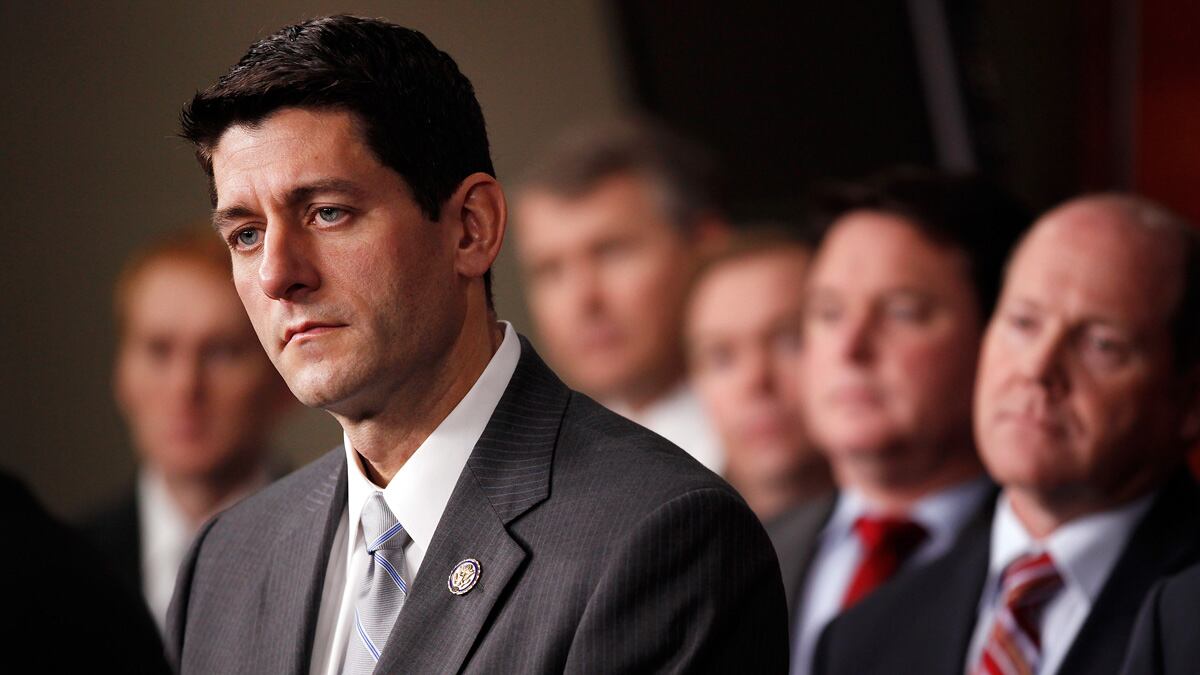
Paul Ryan, the intellectual leader of the congressional Republicans, spoke today at Georgetown University.
At the core of his speech was this analysis:
The overarching threat to our whole society today is the exploding federal debt.
...
After four straight trillion-dollar deficits, and very little economic progress to show for it, I think we know what doesn’t work.
We also have a growing consensus around the ideas that will work. But we lack willing partners at the highest levels to lead us, to unite us, and to address our defining challenge.
The President did not cause the crisis we face. Years of empty promises from both political parties brought us to this moment. But regrettably, this President is unwilling to advance credible solutions to the problem.
Those are important words, but more for what they omit than for what they say.
Ryan is right that for years, the U.S. has been moving toward some kind of debt crisis in the 2020s and 2030s, driven by the costs of Medicare and Medicaid.
But Medicare and Medicaid are not the cause of the shocking deficits of today. Those deficits are caused by the economic collapse of 2008-2009 and the subsequent weak recovery. Recessions drive up federal spending, and curtail federal revenues. Ryan obviously knows that. He deals with the consequences of this fact every day in his budget committee.
And yet in one of his most intellectually ambitious statements to date, Ryan walks past the most important fact of federal budgeting with barely a nod.
How is this possible?
How can Republicans make credible plans for the future if they blind themselves to what is happening all around them in the present?





